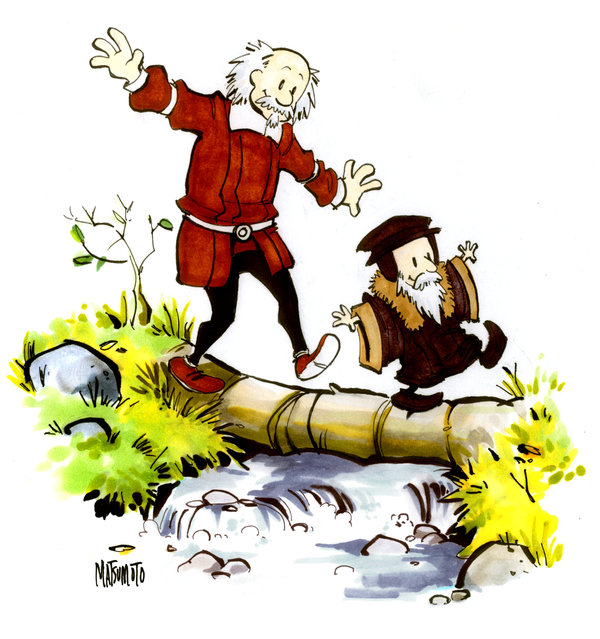Determinism vs Free Will
When I began pondering the question of determinism and free will, I found myself, philosophically and theologically, going back and forth.
Many years ago, we read this, upon which we've often reflected:
In the question of nature v nurture:
Parents of one child believe it's all environment.
Parents of more than one child understand, it's all genetics.
I'm sure you get it, but to belabor the point anyway because I suffer from prolixism: the former take all credit or blame, depending on the results, the latter recognize that given the same approximate upbringing, one can get radically different results.
Certainly has been something we think about a lot as parents of fraternal twins! (If other parents have yet to fully appreciate this, so far having nothing but wonderful darling little ones, wait until you've shepherded all the offspring to adulthood. But then, it may be God's will all yours will remain trouble-free and you can take all the credit. While thanking God of course. Lest my humor be misunderstood due to deadpan delivery, please note: :-^ tongue in cheek.)
There are determinists among scientists and determinists among religionists. There is room for free will in quantum physics, though, and some religionists hold that we are the free-will children of the God of free will, even that free will may be the primary way in which we are created "in His image."
When I began pondering the question of determinism and free will, I found myself, philosophically and theologically, going back and forth.
On the one hand, the omnipotence and omniscience of the Almighty, that God knows the end from the beginning, that God cannot be surprised, augers for the theologies which favor election (and rejection). On the other hand, if there is no free will, how are we aught but automatons? That the Creator is in absolute control of the entire Creation can't be questioned, yet if the Creator chose to grant to the creature true spiritual liberty, full and free choice regarding eternal destiny, that also can't be questioned. (The limited time-frame of the earth-life for the full presentation of the eternal choice has incited ameliorating possibilities, reincarnation in the East, purgatory in the West, but merely extending the question to one type of after-life or another does not affect the basic dilemma under consideration.)
We are raised — in the modern West at least — with the rejection of old conceptions such as the divine right of kings and with the acceptance of the right of personal liberty. We recognize that one may be mentally incapacitated, truly incapable of recognizing right and wrong, but we assume, socially and in our courts, that, otherwise, people are freely choosing. (Otherwise, we would be like those tyrannies where both the thief and the political dissident are considered "insane" and are alike sentenced to "re-education.") However, in religion, such libertarianism and individualism might seem truly the endowment of our Creator as the revolutionary wrote, or could be construed to be more like the diabolical rebel angel who contested the God-centered universe. A philosophically distressing dilemma to ponder.
Perhaps the best clarity I've had on the matter is this simple comparison with the mortal parent: A mere human parent may know the child well enough to predict what choice the child will make. This in no way abrogates the free will of the child, but it does acknowledge that we choose according to our nature and training. If we as material parents can be so foreknowing, we can extrapolate that our divine Parent can, indeed, grant us true freedom of choice, yet foreknow how we will choose. In the end, I can't do better than that, except to confess that the divine power and prerogative makes such conundrums practically beyond our comprehension.
Therefore, I have long since concluded — not too surprisingly considering my own sometime artistic bent — that I am…
…a Calvin & Hobbesian.

A Mindful Original Remix

John Calvin and Thomas Hobbes by Spacecoyote
after Watterson, of course
Linked from Robin Parrish at Forever Geek
Linked from Alan Gardner at Daily Cartoonist


